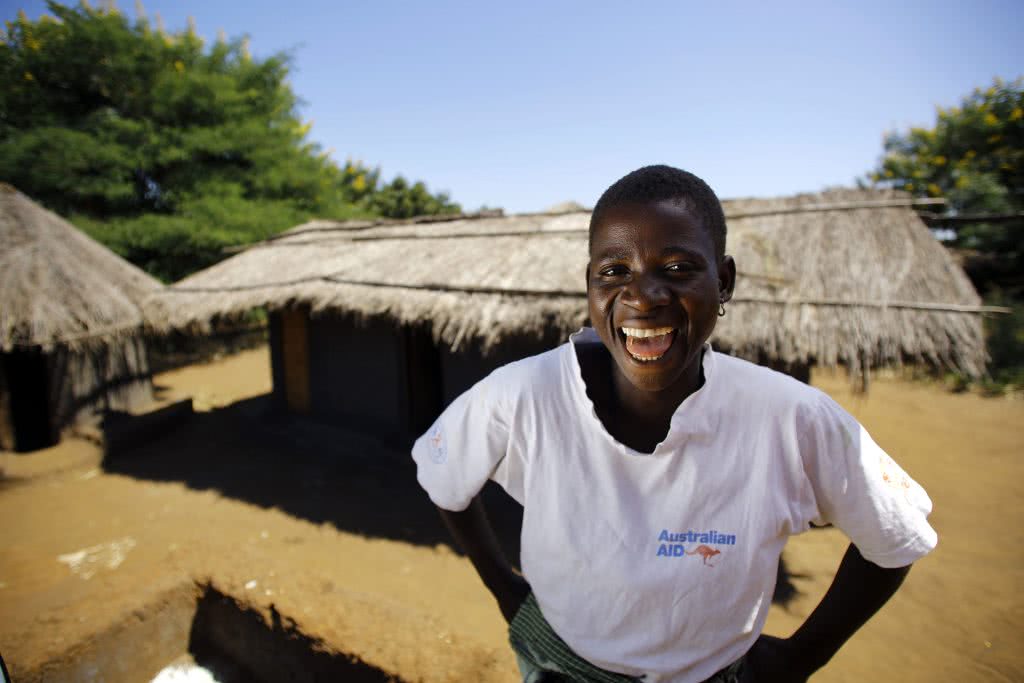Tanzania remains one of the world’s poorest countries, with one third of the country living on less than one US dollar per day.
CARE began working in Tanzania in April 1994, in response to the crisis in Rwanda and the subsequent influx of refugees into the Kagera Region of north-western Tanzania. Over the ensuing years, CARE Tanzania developed innovative education, health, microfinance, and environmental programs across most regions of the country.
Today, we’re working closely with some of the most affected in the fight against extreme poverty, particularly poor women in remote and rural areas, to help provide tools for sustainable change.
Fast Facts
Population: 53.95 million (July 2017 est.)
Life expectancy: 62.6 years (61.2 years male, 64.1 years female) (2017 est.)
Infant mortality: 39.9 deaths/1,000 live births (2017 est.)
Under-5 mortality*: 49 deaths/1,000 live births (2015 est.)
Maternal mortality: 398 deaths/100,000 live births (2015 est.)
Adult literacy rate: 77.9% (83.2% male, 73.1% female) (2015 est.)
Access to improved drinking water: 55.6% (77.2% urban, 45.5% rural)
Access to improved sanitation: 15.6% (31.3% urban, 8.3% rural)
Labour force participation rate^: 90% male, 88% female (2014 est.)
Percentage of seats held by women in national parliament^: 37%
GDP per capita: $3,300 (2017 est.)
Source: CIA World Factbook, *UNICEF, ^World Bank
Food security in Tanzania
Despite growing 70% of the food needed to feed their country, women farmers find it incredibly difficult to provide nutritious food for their families. They work 15-hour days in the field, but lack the income and resources to provide nutritious meals.
CARE’s Growing is Learning project will support women farmers to enter the profitable soy market by training them in production and helping them link into the local market to sell their supply and earn an income.
Soy is sustainable and resilient to drought and climate change and adds nitrogen to enhance the health of the soil. By learning how to plant, process, market and cook with soy, women farmers, in particular, will improve their crop yields, their income and their families overall health and wellbeing.

WE-RISE
Women in Tanzania are more likely to experience poverty. Inequality that is faced by women and girls often begins at an early age with many girls, particularly orphans and those from poor families, remaining uneducated simply because they cannot afford to go to school. As 90% of the population lives in remote and rural areas, providing assistance can be especially challenging. Child marriage is still a critical issue, almost four in every ten Tanzanian women are married before they turn 18.
Our Women’s Empowerment through Improved Resilience, Income, and Food Security (WE-RISE) program is helping women, especially those from remote rural areas who are chronically food insecure, to foster new opportunities and overcome poverty.
Since the program was launched, we’ve found that women achieving empowerment increased by 40% in Tanzania. On average, WE-RISE households now have much healthier diets, consuming from approximately five different types of food, including cereals, eggs and vegetables.

Women and girls empowerment
Women and girls in Tanzania face inequalities and injustices in social, political, and economic structures that limit their participation in society, and restrict their ability to claim their rights.
The Gender Equality and Women’s Empowerment (GEWEP) strategy provides goals and actions to promote women’s economic empowerment, advance equality for women and girls, and address social injustices affecting rural women in Tanzania. GEWEP is a major component of CARE’s over-arching strategy to eradicate poverty, by improving the livelihoods of women in food-insecure rural households dependent on agriculture and natural resources.
GEWEP is aligned with the Sustainable Development Goals (SDGs) to end poverty, fight inequality and injustice, and tackle climate change by 2030.

Improving access to income
In 2009 Village Saving and Loan Associations (VSLAs) were launched in northern Tanzania. In the years that have followed, the program has successfully expanded to over 100,000 members across the country.
The primary purpose of VSLAs is to provide simple savings and loan services in a community that does not have access to formal financial institutions.
A self-selected group forms a VSLA where all members save money in the form of shares. The savings are invested in a loan fund, from which members can borrow money at a reasonable rate of interest. Members also contribute a small sum to a compulsory insurance fund which can be used to provide grants or no-cost loans to members in distress.

Donate now
Support our ongoing work to create a more equal world.
Your donation can help end extreme poverty and give people the means to build a better future for themselves in countries like Tanzania.
For those living in extreme poverty, your support brings education and training, healthcare and clean water, nutritious food, and new ways to earn an income. And in times of crisis, you help us deliver emergency relief. Please donate today.



